Casting a wide net in endodontics
What can you tell us about your background?
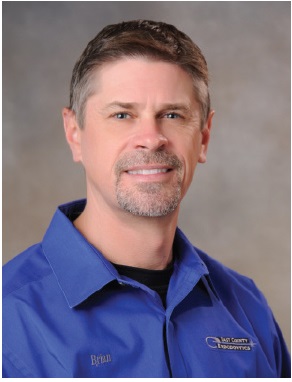 I was born in Flemington, New Jersey, and raised in the country outside of Philadelphia, Pennsylvania. My father was involved in the semiconductor industry, which led our family to relocate to the San Francisco Bay Area of California, where I finished high school. My parents came from modest means and instilled a strong work ethic in my formative years. Growing up along the banks of the Schuylkill River in Pennsylvania, I became infatuated with fishing at an early age. I became an accomplished fly fisherman and enjoyed the hobby of tying my own flies for fishing throughout the entire year. This has led me to excursions all over America, including Alaska, as well as many provinces in Canada, Mexico, and South America. I completed my undergraduate degree in Biological Sciences at the University of California, Davis. Upon graduation, I then entered the University of California San Francisco (UCSF) School of Dentistry, where I earned my dental degree. After dental school, I attended the University of Texas Health (UTHealth®) Science Center at Houston to earn my certificate in endodontics and Master of Science as well. Upon completion of my endodontic residency, I returned to the Bay Area of California where I eventually established my own practice, East County Endodontics, from “scratch.”
I was born in Flemington, New Jersey, and raised in the country outside of Philadelphia, Pennsylvania. My father was involved in the semiconductor industry, which led our family to relocate to the San Francisco Bay Area of California, where I finished high school. My parents came from modest means and instilled a strong work ethic in my formative years. Growing up along the banks of the Schuylkill River in Pennsylvania, I became infatuated with fishing at an early age. I became an accomplished fly fisherman and enjoyed the hobby of tying my own flies for fishing throughout the entire year. This has led me to excursions all over America, including Alaska, as well as many provinces in Canada, Mexico, and South America. I completed my undergraduate degree in Biological Sciences at the University of California, Davis. Upon graduation, I then entered the University of California San Francisco (UCSF) School of Dentistry, where I earned my dental degree. After dental school, I attended the University of Texas Health (UTHealth®) Science Center at Houston to earn my certificate in endodontics and Master of Science as well. Upon completion of my endodontic residency, I returned to the Bay Area of California where I eventually established my own practice, East County Endodontics, from “scratch.”
My office is located in Antioch, California, and consists of three operatories, each outfitted with digital radiography, microscopes, and the latest technology. My team consists of an office manager, a scheduling coordinator, a marketing coordinator, and three dental assistants.
When did you become a specialist, and why?
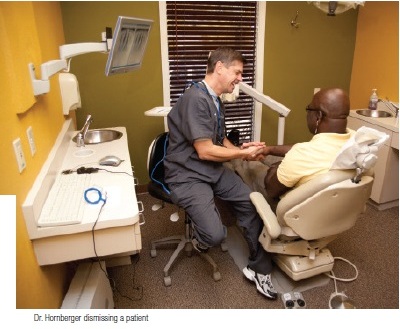 I graduated my endodontic program in 1995. While in dental school, I quickly realized that I wanted to focus on one sector in dentistry. I was not initially certain which specialty I would select, but several were of interest. Upon the completion of my freshman year of dental school, I applied for an endodontic research grant through the National Institutes of Health with my Endodontic Department chair, Dr. Harold Goodis. I was awarded the grant and spent my first summer in San Francisco in the research laboratory learning about fluid flow through dentinal tubules. This became the precursor of 3 more years of endodontic research during my dental school tenure. I was able to be included in several publications and presented my studies in multiple places, including the International Association of Dental Research Conference, in Acapulco, Mexico. During this time I also became President of the UCSF dental research club. Soon, the obvious choice due to interest was endodontics. I found endodontics to be not only interesting, but also very specific, instantly gratifying, and challenging at the same time. It was the one specialty that most people dislike, and I wanted to change the perception of root canal treatment for my future clientele! There is a saying, “You don’t know what you don’t know,” and I must admit, endodontics has brought me so much more enjoyment, gratification, and passion than I ever imagined!
I graduated my endodontic program in 1995. While in dental school, I quickly realized that I wanted to focus on one sector in dentistry. I was not initially certain which specialty I would select, but several were of interest. Upon the completion of my freshman year of dental school, I applied for an endodontic research grant through the National Institutes of Health with my Endodontic Department chair, Dr. Harold Goodis. I was awarded the grant and spent my first summer in San Francisco in the research laboratory learning about fluid flow through dentinal tubules. This became the precursor of 3 more years of endodontic research during my dental school tenure. I was able to be included in several publications and presented my studies in multiple places, including the International Association of Dental Research Conference, in Acapulco, Mexico. During this time I also became President of the UCSF dental research club. Soon, the obvious choice due to interest was endodontics. I found endodontics to be not only interesting, but also very specific, instantly gratifying, and challenging at the same time. It was the one specialty that most people dislike, and I wanted to change the perception of root canal treatment for my future clientele! There is a saying, “You don’t know what you don’t know,” and I must admit, endodontics has brought me so much more enjoyment, gratification, and passion than I ever imagined!
Is your practice limited solely to endodontics, or do you practice other types of dentistry?
Yes, my practice is limited to endodontics. I do place buildups and/or post-core buildups upon request from my referring dentists.
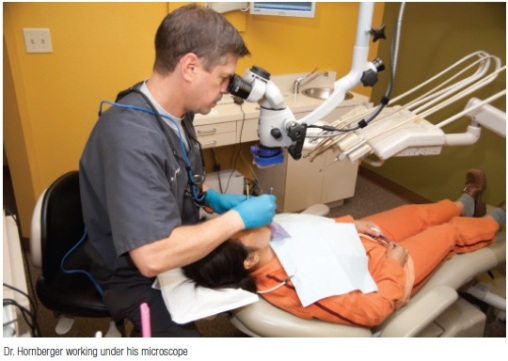 Do your patients come through referrals?
Do your patients come through referrals?
Indeed, my patients come through referrals, 95% of which are from general dentists, and the remainder from patient-to-patient referrals and fellow specialists.
How long have you been practicing endodontics, and what systems do you use?
I began practicing endodontics exclusively in 1995. I worked as an associate for 1½ years prior to opening my own office from scratch in 1996. When people ask about “systems,” the common thought is that we are referring to instrumentation/obturation of root canal systems. To answer that, I primarily use Designs for Vision® 3.5X magnification “loupes” with a headlamp for visual acuity. I also use the Zeiss operating microscope when needed as 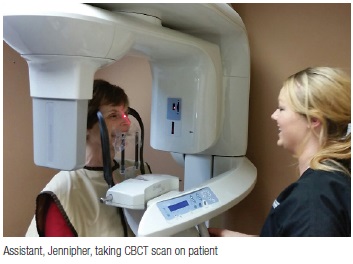 well as Schick Technologies digital radiography and a Carestream Kodak 9000 CBCT machine daily within my office for diagnostic and treatment purposes. I use a variety of rotary instrument systems that vary case by case depending on the level of calcification. In straightforward canal systems, I can use tapered instruments (ProTaper®, Dentsply Tulsa) with ease, but with calcified and/or moderate to severe curvature, I use .02 taper rotary instruments (EndoMagic!™, EndoSolutions™). Systems, however, extend beyond the instrumentation/obturation. We endodontists seem to get “mind-stuck” in technique, but the reality is that we all understand what technique works for us individually. To me, systems also include the scheduling, collections, office personnel, and flow, just to name a few.
well as Schick Technologies digital radiography and a Carestream Kodak 9000 CBCT machine daily within my office for diagnostic and treatment purposes. I use a variety of rotary instrument systems that vary case by case depending on the level of calcification. In straightforward canal systems, I can use tapered instruments (ProTaper®, Dentsply Tulsa) with ease, but with calcified and/or moderate to severe curvature, I use .02 taper rotary instruments (EndoMagic!™, EndoSolutions™). Systems, however, extend beyond the instrumentation/obturation. We endodontists seem to get “mind-stuck” in technique, but the reality is that we all understand what technique works for us individually. To me, systems also include the scheduling, collections, office personnel, and flow, just to name a few. 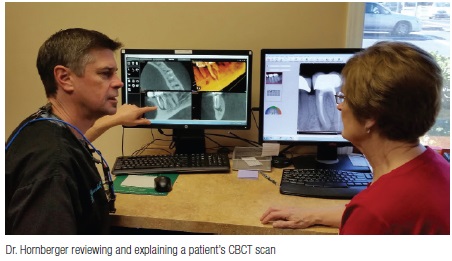 What I have learned is that many endodontists get so bogged down with the technical portion of patient care aspect that they skip the “other” systems that are needed to create the whole story of their practice. Endodontics is an emergency-based specialty, and in my practice, many patients are in pain and require immediate attention and prompt appointments. To accommodate that, I always leave certain treatment slots available each day such that we can see emergent patients and fully treat them each day. My referring offices with which I have strong relationships understand this and have the confidence that I will see their patients each day whenever needed.
What I have learned is that many endodontists get so bogged down with the technical portion of patient care aspect that they skip the “other” systems that are needed to create the whole story of their practice. Endodontics is an emergency-based specialty, and in my practice, many patients are in pain and require immediate attention and prompt appointments. To accommodate that, I always leave certain treatment slots available each day such that we can see emergent patients and fully treat them each day. My referring offices with which I have strong relationships understand this and have the confidence that I will see their patients each day whenever needed.
What training have you undertaken?
Besides my endodontic postgraduate program, I continued to remain very involved in Continuing Education through the AAE, as well as a variety of study groups and professional organizations. I enjoy the business management aspect of endodontics as well and have attended many courses for improving business systems through EndoMastery hosted by Dr. Ace Goerig and his team.
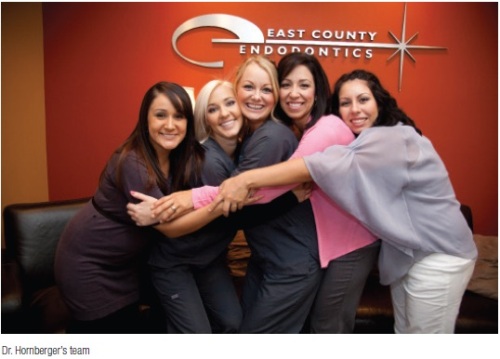 Who has inspired you?
Who has inspired you?
My earliest mentors would have to include my Endodontic Postgraduate Department chair, Dr. John Ludington Jr. as well as my program directors, Dr. John Suchina, and Dr. Jeffrey Hoover.
I did a comparative analysis of several rotary instruments for my Master’s thesis in 1995. At that time, nickel-titanium rotary instruments were in their infancy, and Dr. Ben Johnson provided me great assistance and mentorship during that time. His generosity and unselfish approach was inspiring, and he went on to give much back to endodontics.
Dr. Ace Goerig of Endo Practice Mastery has also been a longtime inspiring mentor to me. I first met him in 1994 when he lectured to my endodontic graduate department in Houston and really appreciated his approach to endodontics and practice management. In 1997, I used Endo Practice Mastery to coach my office in setting up solid business systems. Their systems have revolutionized the way I practice endodontics and have allowed me to be highly efficient and profitable in a low-stress environment. I have remained active with their coursework and am again currently using their coaching services.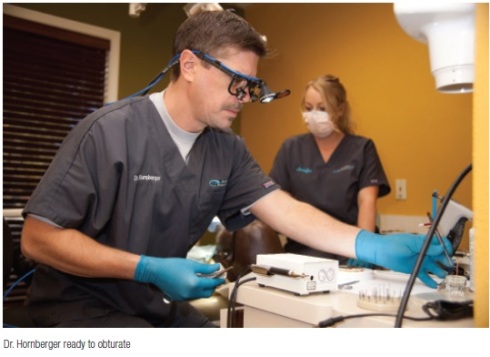
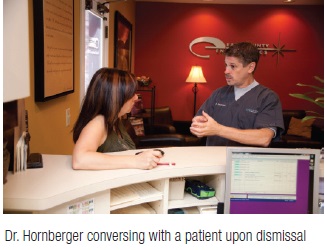 Kendrick Mercer (original founder of Mercer Global) has also been a great resource and inspiration to me, focusing on business, finance, and personal well-being. His teachings allowed me to simplify my life by addressing personal imprints and encodings resulting in a more stress-free life and business model.
Kendrick Mercer (original founder of Mercer Global) has also been a great resource and inspiration to me, focusing on business, finance, and personal well-being. His teachings allowed me to simplify my life by addressing personal imprints and encodings resulting in a more stress-free life and business model.
What is the most satisfying aspect of your practice?
My career in endodontics has brought with it abundance, and this allows me to focus on patient relationships and patient care, as well as afford modern technology and stay current with advancements in endodontics. Daily interactions with my patients are very satisfying. I have assembled a wonderful team that complements me and our office culture well, enabling me to focus strictly on what I do best, and that is patient care. Our workplace is a joyful place, and we truly have fun when we work together.
Professionally, what are you most proud of?
Creating an office that is in harmony with my personal vision. I have been fortunate to be a valued resource in my dental community and am honored to share, teach, and support the dental offices that I work with. Their success is my success, and I truly want them each to prosper; and so many do!
What do you think is unique about your practice?
We are a highly efficient office that focuses on top-notch customer service and satisfaction. We are able to accommodate patients on an emergent basis day in and day out. We remain updated with the latest technology and techniques. We have built strong relationships with so many of our community’s general dental offices and work in harmony with those offices to offer care in the best interest of the patient.
What has been your biggest challenge?
Every business is constantly changing and evolving, and endodontics is no different. It is so important to continue to redefine our practice to meet the current needs and demands of our communities. The changing dynamics of the endodontic world require that we specialists stay steadfast in educating general dental offices of the importance of our services. With the introduction of modern rotary instrumentation and user-friendly obturation methods, more general practitioners are doing their own endodontics, and some with mixed results. The challenge lies in adding value to the advantages of specialty care.
What would you have become if you didn’t become a dentist?
I have a very positive outlook in life, and I suspect I am one those people that would have been happy in any of a number of careers. I have always had a business mentality, and regardless of what I chose to pursue, I believe I would eventually have been a business owner. My backup plan in college, however, was to pursue Chemical Engineering.
What is the future of endodontics and dentistry?
I do believe the future of endodontics and dentistry as a whole is very promising. People are living longer, and there will always be dental needs. Medical professionals are appreciating more and more the role dental health plays in overall medical well-being. Advances in dentistry and endodontics continue to evolve, creating additional services for patients. I do believe there are cycles of innovation and treatment modalities, and specialty endodontics will be an essential part in saving and maintaining many teeth that otherwise would have been extracted. Although implants are touted as a great tooth replacement option, I do believe that the best implant possible is the natural tooth itself. As endodontics continues to evolve and improve with enhanced technology, more teeth will be endodontically managed and maintained. As people live longer, there are more patients who are either immuno-compromised or have complex medical histories that may contraindicate extraction of teeth, thus requiring endodontics. Examples would be patients who have a history of bisphosphonates use or chemotherapies and radiation for cancer patients.
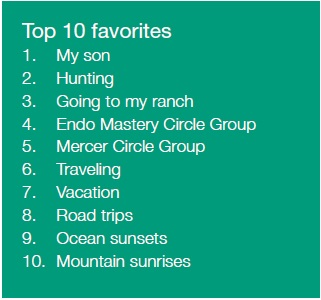 What are your top tips for maintaining a successful specialty practice?
What are your top tips for maintaining a successful specialty practice?
We are in the people business, and with that said, we must always remember we offer a sought-after service for people wanting to save their teeth and have good oral health. Customer service demands predictable, viable options for teeth to be saved, and cutting-edge technology in endodontics can often fill that need. This requires inter-
disciplinary dentistry, meaning we need to create and maintain relationships with other practitioners to share and achieve common goals. Understanding that businesses evolve and change requires that a successful specialty practice do so as well. It is a must to stay on the forefront of the needs of your own dental community as well as endodontics.
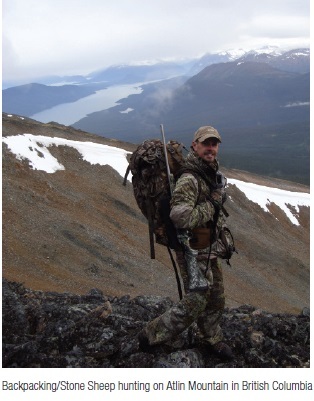 What advice would you give to a budding endodontist?
What advice would you give to a budding endodontist?
The sky is the limit. You can dream your practice to be any way you want it to be. Never sacrifice quality for speed; speed will come with experience. “Hitch your wagon to a star,” and find a mentor or two who inspire you and who have the type of practice you desire. Enjoy your career and continue to learn, grow, and keep up with technology and techniques to maintain a solid presence as an endodontist to your colleagues.
What are your hobbies, and what do you do in your spare time?
I am very much an outdoorsman. My passion is hunting; however, fishing is a close second. My outdoor excursions have taken me all over North America, and I cherish traveling to new places. I also enjoy spending time with my 15-year-old son, whether it be travel, fishing, or simply going to a movie. We have a treasured bond, and I truly enjoy my time with him. I enjoy concerts, sporting events, wine tasting, and touring.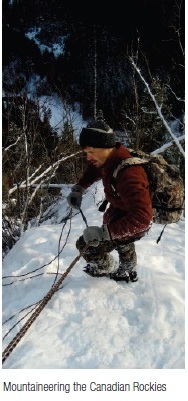
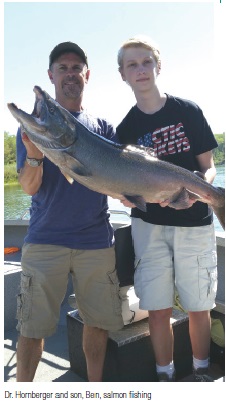
Stay Relevant With Endodontic Practice US
Join our email list for CE courses and webinars, articles and more..


